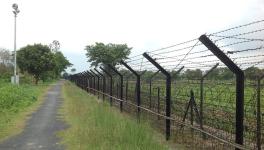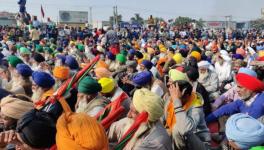At Delhi Seminar, SKM Leaders Call for Next Phase of Farmers’ Movement
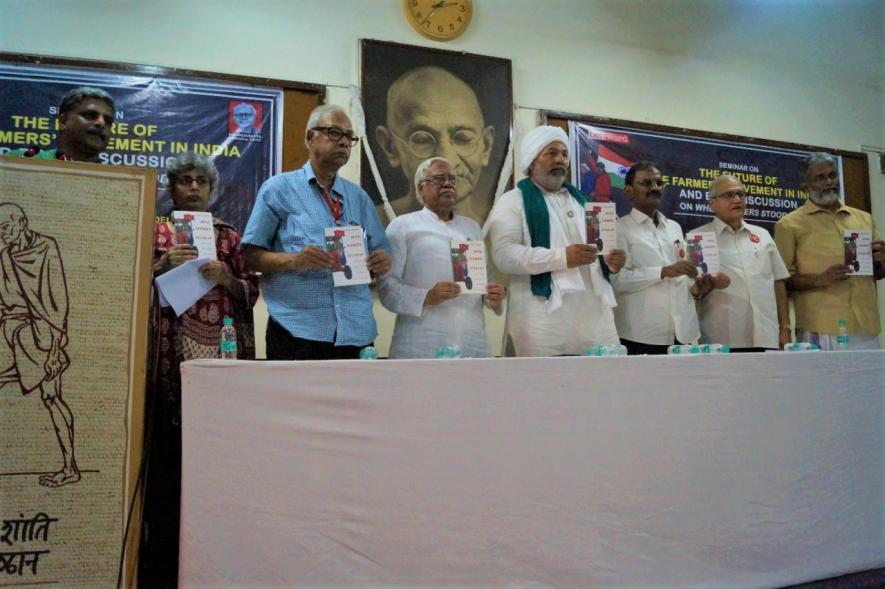
New Delhi: Eight months after the farmers' movement for the repeal of the three farm laws concluded, leaders of the Samyukta Kisan Morcha (SKM) met in the city on Monday to recall the heroic struggle in its various dimensions.
The occasion was a seminar titled ‘The Future of the Farmers Movement’, held at the Gandh Peace Foundation, which saw the participation of farmer leaders, Hannan Mollah, Ashok Dhawale, Rakesh Tikait, Darshan Pal and Yogendra Yadav.
The topic of discussion was All India Kisan Sabha (AIKS) leader Dhawale’s book When Farmers Stood Up, which was launched earlier this year in Kannur, Kerala
After a brief musical performance by Jana Natya Manch, Archana Prasad, a professor at Jawaharlal Nehru University (JNU), while giving an introduction to the book, said: “It is essential that this book reaches everyone, as it gives hope against the struggle of fascism. I must emphasise that while the book has been written by Dr Dhawale, indeed, through it speaks the voices of all the workers and farmers who participated headfirst in the movement.”
Prasad said there was pre-history to the farmers’ movement as it erupted September 2020 onward, with the struggle against BJP-led National Democratic Alliance-I’s Land Acquisition Bill. “This book underlines the fact the movement was not simply built by 500 organisations, but through a long protracted struggle 2014 onward,” she added.
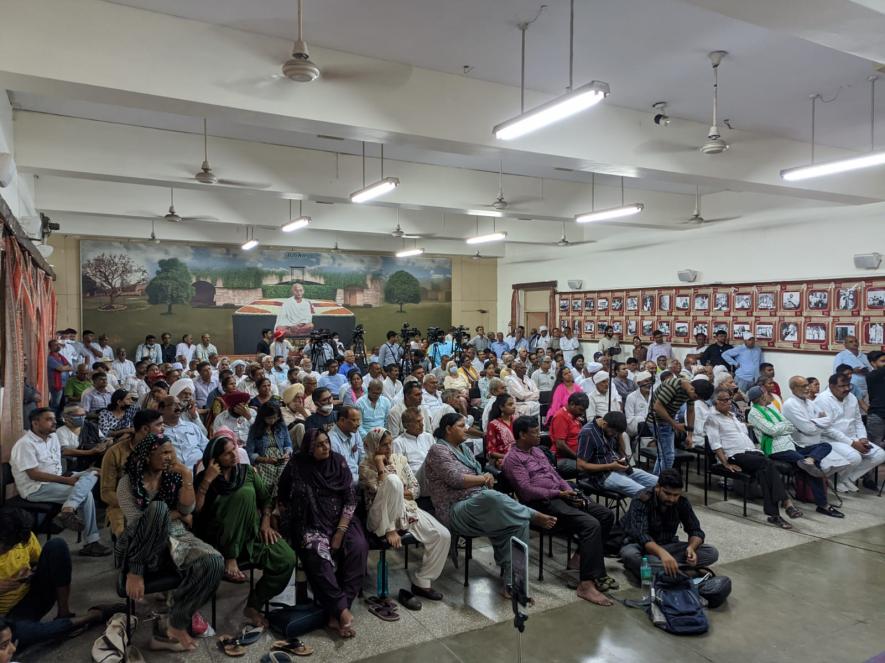
Darshan Pal of Krantikari Kisan Union congratulated Dhawale for his “rigorous efforts” to compile the various moments in the farmers’ movement. He gave personal anecdotes on the various ups and downs of the movement.
On the ‘Delhi Chalo’ call given by SKM on November 26, 2020, Pal said: “To be frank, there were many options in front of us. After reaching the Punjab-Haryana border, our long cavalcade could have stopped where the police set up barriers. Some of us thought that we must push through. In the end, it was the sheer will of the people, especially of Punjab, that showed us the way.”
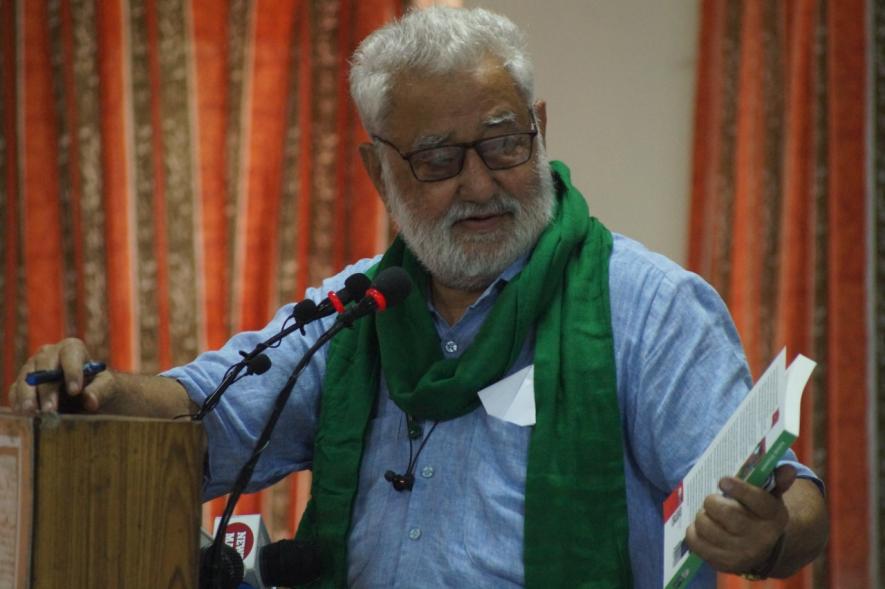
Dr Darshan Pal
“By the time we reached the Singhu border, SKM had truly become the face of the movement. Even organisations who chose to ignore our efforts earlier now happily chose to come on this umbrella,” Pal recalled. He also stressed the unifying bonds created in the year-long movement. “Muslims of Uttar Pradesh and Gujjar-Meenas of Rajasthan were brought together in this struggle, bridging the religious divisions between them,” he added.
Bharatiya Kisan Union (Tikait) leader Rakesh Tikait, a prominent face of the movement in Western Uttar Pradesh, expressed his gratitude to Hanna Mollah, Dhawale and others from AIKS for patching up scattered and parochial movements into more united fronts in the early days of the movement against the farm laws. He then went on to talk about his recent visits to rural areas, where the necessity of a new farmers' movement became clear to him.
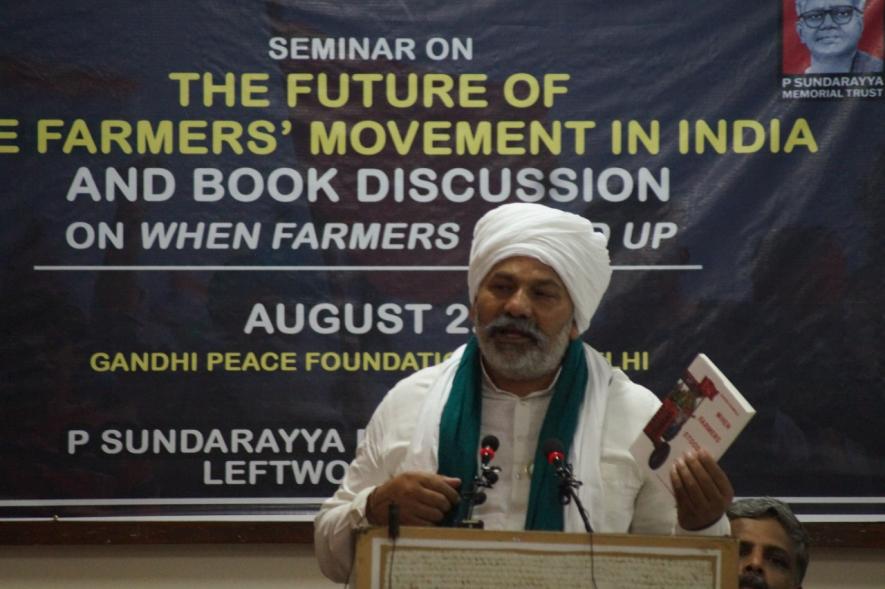
Rakesh Tikait
“I was in Bihar some weeks ago: there, the APMC (Agricultural Produce Market Committee) Acts were axed 15 years ago. Now, agents of big companies sit where the mandi once was. Some of the lands here have simply been sold off,” he claimed.
“We assume migrants from Bihar to be labourers. This is a misconception; many of them have some land back home, but they have been forced to leave agriculture since they no longer get adequate prices. This is what happens when MSP (minimum support price) is lacking,” he said, adding that “this is why SKM says that our movement has only been suspended, not finished. For MSP, against the Electricity Amendment Bill, for crop insurance and pension for farmers, our fight continues.”
Giving a hint of SKM’s future plan, Tikait said: “We are now planning for Mission 2024, and we will work with Opposition parties on this. After all, they need us, too: farmers are the spine of the country’s democratic movement.”
Dhawale, president of AIKS, in his address, expressed his gratitude to Rajinder Sharma of Loklahar, who pushed him to write weekly about the farmers’ movement right from December 2020. “It is owing to him that I could compile meticulously weekly happenings in the movement. Second, I would also thank Sudhanva Deshpande of Leftword Books, who encouraged me to write a book immediately after the struggle concluded on December 9, 2021.”
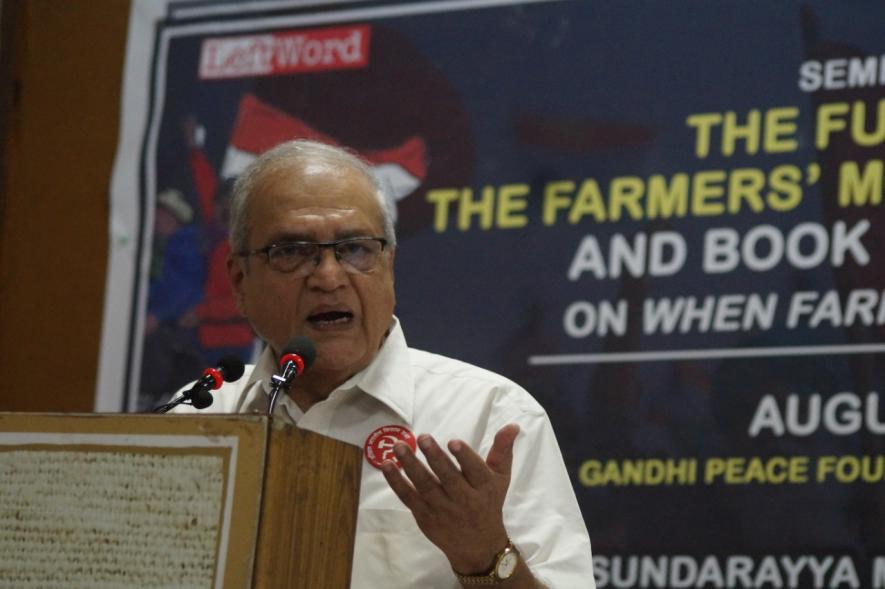
Dr Ashok Dhawale
He spoke about the impact the movement had on him. “I can say without a doubt that in contemporary times, the world has not seen a movement as massive as ours. I give my red salutes to the toiling people who made it such a grand success.” He went on to emphasise the solidarity between workers and farmers that was built during the movement.
“I remember how Rakesh Tikait ji and I went to Vishakapatnam in the thick of the movement to extend our solidarity to about 30,000 workers striking to save the Vizag steel plant there. They, too, extended their support to our cause. It was through these actions that we were able to build a movement that covered the span of the country: from Kashmir to Kanyakumari, and from Gujarat to Guwahati,” Dhawale stated.
Representatives of the industrial unions and rural working class too joined the seminar. Tapan Sen, general secretary of the Centre of Indian Trade Unions, highlighted how the farmers’ movement saw three back-to-back general strikes, called jointly by SKM and the central trade unions. “The farmers’ support to workers gave us immense confidence and encouraged to struggle against the labour codes militantly. Even after the movement concluded, SKM gave it complete support to the two-day national strike held on March 28-29 this year,” Sen said.
“The biggest impact of the movement has been that India’s core productive classes have united and have correctly identified its enemy: the corporate-fascist nexus ruling the country today,” he said.
B Venkat, general secretary of the All India Agricultural Workers’ Union, spoke about the participation of dalits and tribals in the farmers' movement.
The seminar was organised by the P Sundarayya Memorial Trust and Leftword Books.
All photographs were taken by the author.
Get the latest reports & analysis with people's perspective on Protests, movements & deep analytical videos, discussions of the current affairs in your Telegram app. Subscribe to NewsClick's Telegram channel & get Real-Time updates on stories, as they get published on our website.















